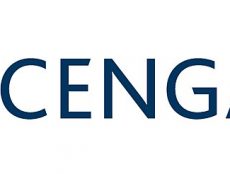
Articles
Industry News
Instructure Investors Block Thoma Bravo Acquisition: Report
By Henry Kronk
February 13, 2020
In December, Instructure’s leadership announced it had reached a $2 billion buyout agreement with private equity firm Thoma Bravo. The company, however, has failed to gather investor support to approve this measure, according to numerous reports.
Bloomberg first broke the news on February 12, crediting anonymous sources familiar with the proceedings. The shareholder vote to approve the merger had been scheduled for February 13th. On the 13th, Instructure announced it had pushed the vote back to February 14th.
Opposition Coalesces Around Instructure’s Proposed $2 Billion Buyout
The deal proposed and approved by Instructure’s board set the per-share buyout of Instructure stock at $47.60. On the day before the announcement, it had been trading at $52.96 a share, but fell to $48.75 the next day.
Following the announcement of the proposed deal, a coalition of Instructure shareholders began to rally opposition. The day after the deal was announced, the hedge fund Rivulet Capital filed a 13D with the SEC saying they would not support the deal, arguing that it undervalued the company. Rivulet controlled 5.23% of Instructure stock at the time.
A week later, Praesidium, an investor controlling 7.5% of Instructure stock, also filed a 13D announcing their opposition. Company representatives wrote, “Not only does the proposed offer represent a more than 10% discount to Instructure’s closing share price of $52.96 on December 3, 2019, the day before the deal was announced, but we have many reasons to believe the Board did not undertake a full and fair sales process to ensure that shareholders receive maximum value for their investment.”
Concerns Regarding Value, Process, and Conflicts of Interest
By January, two more major shareholders had announced opposition to the deal. Speaking to Bloomberg at the time, Lateef Investment Management Investment Officer Quoc Tran brought further concerns to light regarding Instructure CEO Dan Goldsmith.
“Goldsmith staying on as CEO seems like a conflict of interest where he’s putting his own interests ahead of shareholders,” Tran told Bloomberg. “We don’t think Dan has done a good job with Bridge and this deal rewards him rather than hold him accountable.”
Following opposition by Lateef and Oberndorf Enterprises, edtech consultant Phil Hill reported on January 9 that roughly one third of Instructure shareholders opposed the deal.
After this opposition came to light, two advisory firms—Glass Lewis and Co. and Institutional Shareholder Services—also encouraged shareholders to vote against the deal.
In an 8K filed with the SEC in early December, Instructure said they, “conducted a comprehensive and deliberate process, lasting eleven months and ultimately involving 40 parties, 19 of which signed non-disclosure agreements and engaged with the Company, before entering into the Merger Agreement.”
Instructure also enlisted JP Morgan as a formal advisor on January 20, 2019. Just prior to this consultation, Instructure stock was trading at $39.04 per share.
Before announcing the merger, furthermore, Instructure had consulted some shareholders who signed a non-disclosure agreement to discuss the deal. Also in the December 8K, Instructure representatives wrote, “Shortly before entering into the Merger Agreement, the Company entered into non-disclosure agreements with several of its largest stockholders to solicit their views of the possible transaction. The Board carefully considered the viewpoints of these stockholders and the obligations of the Board to maximize value for all stockholders prior to the Board’s unanimous approval of the execution and delivery of the Merger Agreement by the Company.”
Featured Image: JP Stanley, Flickr.









No Comments